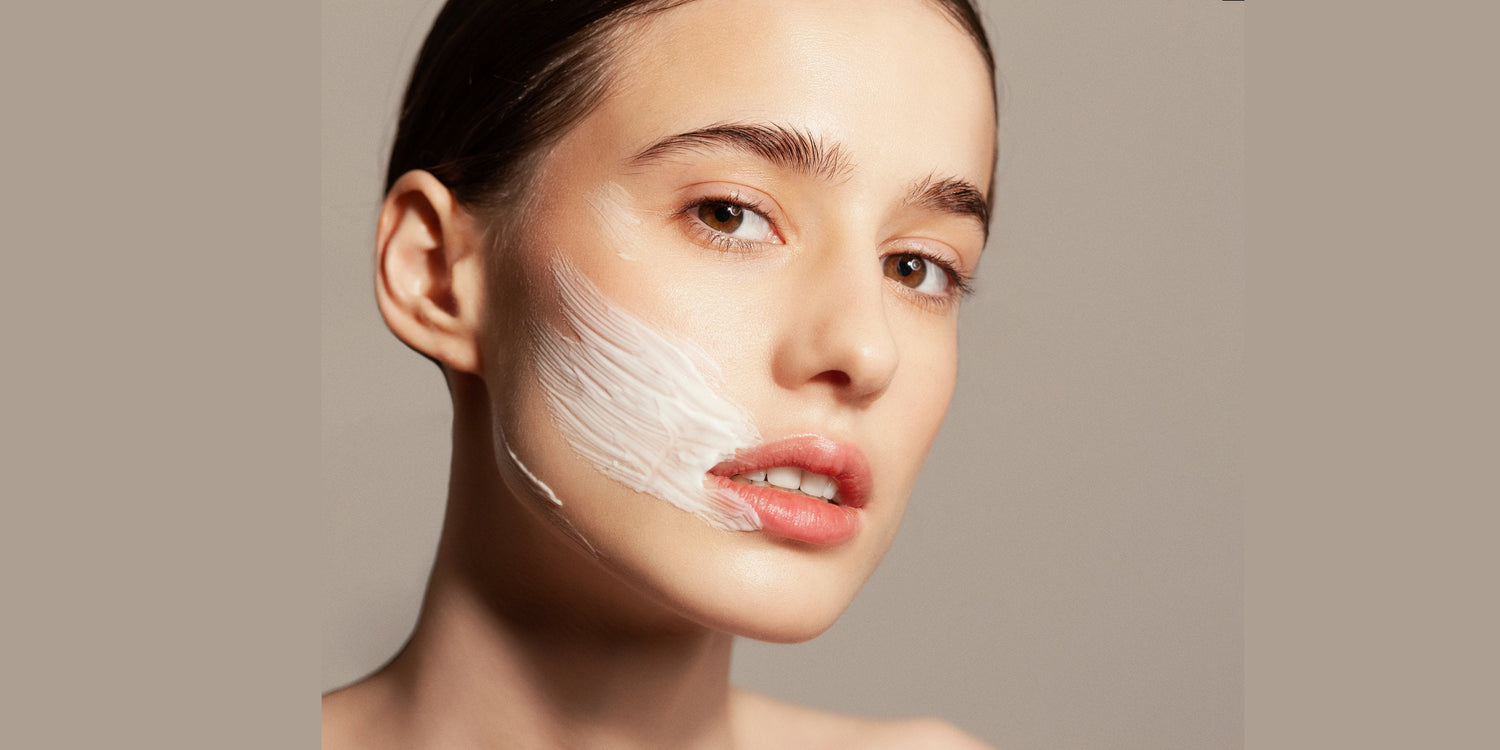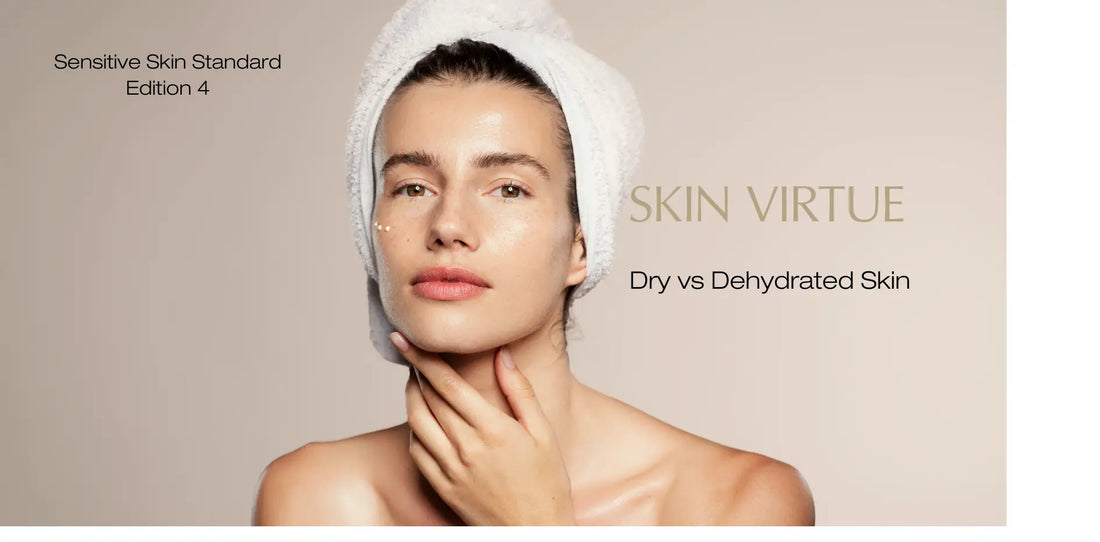Dry vs Dehydrated Skin
Welcome to E.4 of The Sensitive Skin Standard
Your weekly guide to evidence-based skincare solutions for reactive and ageing skin. This week, we’re demystifying the critical difference between Dry vs Dehydrated Skin — a distinction every skin professional must master to effectively treat compromised barriers.
👉 Read on and share this with colleagues who care about science-backed skincare.
As skin professionals, you know that client concerns around dryness spike in winter. But here’s the catch: most of them are battling dehydration, not dry skin. Treating one like the other can prolong sensitivity, increase inflammation, and disrupt the barrier further.
What Makes Skin Dry vs. Dehydrated?
- Dry skin is a skin type — it lacks oil (lipids) and is often genetic. It requires emollient support, lipid restoration, and barrier-strengthening ingredients.
- Dehydrated skin is a condition — any skin type (even oily) can experience it. It lacks water and often results from environmental stress, over-exfoliation, or compromised barrier function.
The Most Common Winter-Related Causes of Skin Dehydration
Dehydration isn't just about forgetting to drink water — it's often a complex result of environmental, behavioural, and physiological stressors that compromise the skin barrier. In winter, the following are particularly common triggers:
- Indoor Heating: Central heating systems lower humidity, stripping moisture from the skin.
- Hot Showers & Baths: Long, hot water exposure breaks down the skin's lipid barrier and increases TEWL.
- Cold Winds & Harsh Weather: Low outdoor temperatures and wind weaken the skin barrier, making it prone to flaking and tightness.
- Low Water Intake: In winter, people tend to drink less water, impacting internal hydration.
- Incorrect Skincare: Products lacking humectants or with drying alcohols exacerbate dehydration.
- Over-Exfoliation: Using acids or scrubs too frequently in winter compromises already stressed skin.
- Age-Related TEWL: As skin ages, its ability to retain moisture diminishes, especially in sensitive types.
Why Sensitive Skin Is Prone to Dehydration
Impaired barrier function increases transepidermal water loss (TEWL) by up to 37% in individuals with rosacea, eczema, or post-procedural skin.
Clinical Solution — Support Hydration + Barrier Function Together
What Works:
- Humectants: Hyaluronic acid, panthenol, sodium PCA
- Barrier boosters: Ceramides, squalane, shea butter
- Anti-inflammatory agents: Niacinamide, allantoin
Clinical Insight
A 2019 review in Frontiers in Medicine explored the pathophysiology of sensitive skin and found that dehydration significantly exacerbates barrier dysfunction, leading to increased reactivity, discomfort, and inflammation—especially in individuals predisposed to sensitivity. Source: Frontiers in Medicine – Sensitive Skin: Lessons From Transcriptomic Studies (2019)
Why Skin Virtue Leads
Our formulations deliver a multi-functional approach that supports water retention, lipid restoration, and sensitivity control — without compromising on results.
Product Recommendations for Clinics
- Pure Nourish Hydrating Solution – Panthenol, niacinamide, and humectants
- Pure Nourish Moisturising Cream – Rich in squalane and shea butter
- Future Advanced Radiance Serum – Deep hydration and firming
Use Case
Clinics integrating barrier-supportive hydration pre- and post-treatment see reduced downtime and higher client satisfaction.
Ready to Improve Post-Treatment Outcomes and Winter Retention?
Stock Skin Virtue’s barrier-first hydrating system in your clinic. 🔗 Partner with us
Final Thought
Treating dehydration as dryness is one of the most common missteps in clinical skincare.
Ending Quote
"Hydration is like laughter — it feels great and everyone needs more than they realise."
Join Our Clinical Network Be part of a growing professional community focused on real results for sensitive, sensitised, and ageing skin.
Order your complimentary clinical sample pack and experience Skin Virtue’s bioactive solutions firsthand. 📦 Request your free sample pack today and start prescribing with confidence.
Author - Gary Williams CEO & Co-Founder, Skin Virtue
🔗 Recommended Reading from Skin Virtue Professional Insights
-
Understanding Sensitive and Sensitised Skin
Deep dive into the differences between sensitivity and sensitisation — critical for accurate client diagnosis and treatment planning. -
The Role of Hydration in Preventing Premature Ageing: A Professional Perspective
Explore how hydration impacts the skin's structural longevity and why it's essential in all anti-ageing protocols. -
The Power of a Mature Aesthetic: Rethinking Ageing in Skincare and Aesthetic Medicine
Reframe the conversation around ageing — and support clients with a barrier-first, longevity-driven approach.



